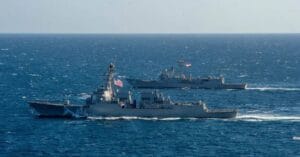Moscow jails a missile scientist Alexander Shiplyuk for treason
A Moscow court sentenced Alexander Shiplyuk, a prominent physicist specializing in hypersonic weapons technology, to 15 years in a penal colony for treason.

A Moscow court sentenced Alexander Shiplyuk, a prominent physicist specializing in hypersonic weapons technology, to 15 years in a penal colony for treason. The conviction marks the latest in a series of high-profile cases targeting Russian scientists involved in sensitive military research.
Shiplyuk, who led the Khristianovich Institute of Theoretical and Applied Mechanics in Novosibirsk, was also fined 500,000 rubles (approximately $5,650) and given an additional 1.5 years of restricted freedom, according to Russia’s TASS news agency.
The charges against Shiplyuk remain shrouded in secrecy, but Russian media reports suggest he was accused of sharing classified information on hypersonic technology with foreign officials, potentially during a 2017 scientific conference in China. Hypersonic weapons, which can travel at speeds up to 10 times the speed of sound, are considered a critical component of modern military arsenals, capable of penetrating advanced air defense systems.
Despite the gravity of the charges, Shiplyuk has reportedly maintained his innocence throughout his detention in Moscow’s notorious Lefortovo prison, where he has been held since 2022.
Also Read: UAE pardons 57 Bangladeshis jailed for anti-government protests
Shiplyuk’s conviction is part of a broader crackdown on Russian academics, particularly those involved in defense-related research. Nearly a dozen scientists have faced treason charges in recent years, including several from Shiplyuk’s own institute, which is registered as part of Russia’s military-industrial complex.
In May, Shiplyuk’s colleague, 78-year-old Anatoly Maslov, was sentenced to 14 years for treason. The arrests have raised concerns among the international scientific community, with two U.S. scientists who knew both Maslov and Shiplyuk telling Reuters that the accused were involved in one aspect of the complex process required to develop hypersonic missiles.
Russia, which has positioned itself as a leader in hypersonic missile technology, has used these weapons extensively in its ongoing war against Ukraine, targeting major cities across the country. The intensified scrutiny and arrests of scientists since Russia’s invasion of Ukraine in 2022 suggest a growing climate of suspicion and pressure within the nation’s scientific and academic circles.







